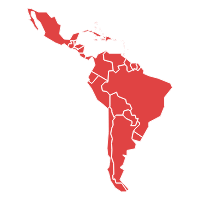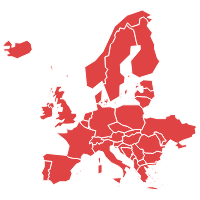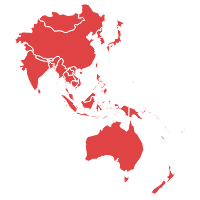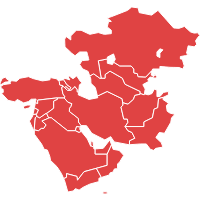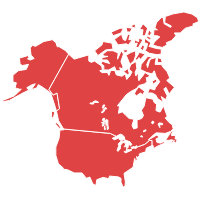- Syrups
- Capsules
- Tablets
- Powders
- Others
Halal Pharmaceuticals Market size was valued at USD 123.03 billion in 2022, growing at a CAGR of 9.4% during the forecast period 2023-2029. Halal means permissible to consume and the products are prepared as per to the Shariah Principles used shariah-compliant ingredients and methods. Halal is one of the tenets of Islam morality and refers to lawful. Halal pharmaceuticals are thought to be significantly safer, more effective, and less polluted because they are prepared, packaged, and distributed according to Islamic beliefs and are held to high-quality standards. The improving economic conditions in Islamic countries are providing prospects for market product expansion. Furthermore, rising public knowledge of environmental and health risks has had a huge impact on the pharmaceutical business. Regulations and uniformity in the sector are difficult to achieve because regulatory agencies and pharmaceutical associations all over the world hold differing viewpoints. For example, American pharmaceutical corporations have recently expressed their dissatisfaction with Malaysia's Ministry of Health's rules (MOH). These standards were created with the goal of specifying the ingredients that are permitted in medications according to Islamic law. The Pharmaceutical Researchers and Manufacturers of America expressed their concern in their yearly report to the United States Trade Representative (PhRMA). The global halal pharmaceuticals market is segmented by drug type, region, and drug class. The Halal Pharmaceuticals Market can be divided into five categories based on medicine class: allergies, endocrine pharmaceuticals, pain meds, respiratory drugs, and others. The industry is separated into three types: capsules, syrups, and tablets. Capsules and pills, for example, are increasingly using edible polymers and non-halal components. As a result, they are seeing a surge in demand for halal medications.
Global Halal Pharmaceuticals Market Summary
Study Period
2024-2030
Base Year
2023
CAGR
9.4%
Largest Market
Asia-Pacific
Fastest Growing Market
Latin-America
Halal Pharmaceuticals Market Dynamics
Halal pharmaceuticals are the products which are manufactured, packed and distributed without using pork, dog or alcoholic ingredients which are prohibited by Islam. Increase in safety and quality assurance of the halal products across the world, growing care and consciousness regarding selection of ingredients with which the drugs are prepared majorly drives the market for halal pharmaceuticals. Furthermore, Inclination towards the organic and ecofriendly, healthy drugs and healthcare products, increase in investments on R&D activities, increase in usage of halal pharmaceuticals by Muslim population all over the world propels the market growth for halal pharmaceuticals. However, lack of awareness, low adoption rate, strict regulatory framework are hampering the growth of halal pharmaceuticals market.
Key Features of the Reports
- The halal pharmaceuticals market report provides granular level information about the market size, regional market share, historic market (2018 to 2022) and forecast (2023 to 2029)
- The report covers in-detail insights about the competitor’s overview, company share analysis, key market developments, and their key strategies
- The report outlines drivers, restraints, unmet needs, and trends that are currently affecting the market
- The report tracks recent innovations, key developments and startup’s details that are actively working in the market
- The report provides plethora of information about market entry strategies, regulatory framework and reimbursement scenario
- The report analyses the impact of socio-political environment through PESTLE Analysis and competition through Porter’s Five Force Analysis in addition to recent technology advancements and innovations in the market

Global Halal Pharmaceuticals Market Segmentation
By Dosage Form
By Drug Class
- Analgesics
- Pain management drugs
- Anti-inflammatory drugs
- Respiratory drugs
- Cardiovascular drugs
- Vaccines
- Others
By Distribution Channel
- Pharmacies
- Online pharmacies
- Hospital Pharmacies
Frequently Asked Questions
The Halal Pharmaceuticals Market size was valued at USD 123.03 billion in 2022
The Halal Pharmaceuticals Market has been classified into North America, Asia Pacific, Europe, Latin America, Middle East and Africa, and the rest of MEA.
Latin America is the fastest-growing for Halal Pharmaceuticals Market
| 1.Executive Summary |
| 2.Global Halal Pharmaceuticals Market Introduction |
| 2.1.Global Halal Pharmaceuticals Market - Taxonomy |
| 2.2.Global Halal Pharmaceuticals Market - Definitions |
| 2.2.1.Dosage Form |
| 2.2.2.Drug Class |
| 2.2.3.Distribution Channel |
| 2.2.4.Region |
| 3.Global Halal Pharmaceuticals Market Dynamics |
| 3.1. Drivers |
| 3.2. Restraints |
| 3.3. Opportunities/Unmet Needs of the Market |
| 3.4. Trends |
| 3.5. Product Landscape |
| 3.6. New Product Launches |
| 3.7. Impact of COVID 19 on Market |
| 4.Global Halal Pharmaceuticals Market Analysis, 2018-2022 and Forecast 2023-2029 |
| 4.1. Market Analysis, 2018-2022 and Forecast, 2023-2029, (Sales Value USD Million) |
| 4.2. Year-Over-Year (Y-o-Y) Growth Analysis (%) |
| 4.3. Market Opportunity Analysis |
| 5.Global Halal Pharmaceuticals Market By Dosage Form, 2018-2022 and Forecast 2023-2029 (Sales Value USD Million) |
| 5.1. Syrups |
| 5.1.1. Market Analysis, 2018-2022 and Forecast, 2023-2029, (Sales Value USD Million) |
| 5.1.2. Year-Over-Year (Y-o-Y) Growth Analysis (%) and Market Share Analysis (%) |
| 5.1.3. Market Opportunity Analysis |
| 5.2. Capsules |
| 5.2.1. Market Analysis, 2018-2022 and Forecast, 2023-2029, (Sales Value USD Million) |
| 5.2.2. Year-Over-Year (Y-o-Y) Growth Analysis (%) and Market Share Analysis (%) |
| 5.2.3. Market Opportunity Analysis |
| 5.3. Tablets |
| 5.3.1. Market Analysis, 2018-2022 and Forecast, 2023-2029, (Sales Value USD Million) |
| 5.3.2. Year-Over-Year (Y-o-Y) Growth Analysis (%) and Market Share Analysis (%) |
| 5.3.3. Market Opportunity Analysis |
| 5.4. Powders |
| 5.4.1. Market Analysis, 2018-2022 and Forecast, 2023-2029, (Sales Value USD Million) |
| 5.4.2. Year-Over-Year (Y-o-Y) Growth Analysis (%) and Market Share Analysis (%) |
| 5.4.3. Market Opportunity Analysis |
| 5.5. Others |
| 5.5.1. Market Analysis, 2018-2022 and Forecast, 2023-2029, (Sales Value USD Million) |
| 5.5.2. Year-Over-Year (Y-o-Y) Growth Analysis (%) and Market Share Analysis (%) |
| 5.5.3. Market Opportunity Analysis |
| 6.Global Halal Pharmaceuticals Market By Drug Class, 2018-2022 and Forecast 2023-2029 (Sales Value USD Million) |
| 6.1. Analgesics |
| 6.1.1. Market Analysis, 2018-2022 and Forecast, 2023-2029, (Sales Value USD Million) |
| 6.1.2. Year-Over-Year (Y-o-Y) Growth Analysis (%) and Market Share Analysis (%) |
| 6.1.3. Market Opportunity Analysis |
| 6.2. Pain management drugs |
| 6.2.1. Market Analysis, 2018-2022 and Forecast, 2023-2029, (Sales Value USD Million) |
| 6.2.2. Year-Over-Year (Y-o-Y) Growth Analysis (%) and Market Share Analysis (%) |
| 6.2.3. Market Opportunity Analysis |
| 6.3. Anti-inflammatory drugs |
| 6.3.1. Market Analysis, 2018-2022 and Forecast, 2023-2029, (Sales Value USD Million) |
| 6.3.2. Year-Over-Year (Y-o-Y) Growth Analysis (%) and Market Share Analysis (%) |
| 6.3.3. Market Opportunity Analysis |
| 6.4. Respiratory drugs |
| 6.4.1. Market Analysis, 2018-2022 and Forecast, 2023-2029, (Sales Value USD Million) |
| 6.4.2. Year-Over-Year (Y-o-Y) Growth Analysis (%) and Market Share Analysis (%) |
| 6.4.3. Market Opportunity Analysis |
| 6.5. Cardiovascular drugs |
| 6.5.1. Market Analysis, 2018-2022 and Forecast, 2023-2029, (Sales Value USD Million) |
| 6.5.2. Year-Over-Year (Y-o-Y) Growth Analysis (%) and Market Share Analysis (%) |
| 6.5.3. Market Opportunity Analysis |
| 6.6. Vaccines |
| 6.6.1. Market Analysis, 2018-2022 and Forecast, 2023-2029, (Sales Value USD Million) |
| 6.6.2. Year-Over-Year (Y-o-Y) Growth Analysis (%) and Market Share Analysis (%) |
| 6.6.3. Market Opportunity Analysis |
| 6.7. Others |
| 6.7.1. Market Analysis, 2018-2022 and Forecast, 2023-2029, (Sales Value USD Million) |
| 6.7.2. Year-Over-Year (Y-o-Y) Growth Analysis (%) and Market Share Analysis (%) |
| 6.7.3. Market Opportunity Analysis |
| 7.Global Halal Pharmaceuticals Market By Distribution Channel, 2018-2022 and Forecast 2023-2029 (Sales Value USD Million) |
| 7.1. Pharmacies |
| 7.1.1. Market Analysis, 2018-2022 and Forecast, 2023-2029, (Sales Value USD Million) |
| 7.1.2. Year-Over-Year (Y-o-Y) Growth Analysis (%) and Market Share Analysis (%) |
| 7.1.3. Market Opportunity Analysis |
| 7.2. Online pharmacies |
| 7.2.1. Market Analysis, 2018-2022 and Forecast, 2023-2029, (Sales Value USD Million) |
| 7.2.2. Year-Over-Year (Y-o-Y) Growth Analysis (%) and Market Share Analysis (%) |
| 7.2.3. Market Opportunity Analysis |
| 7.3. Hospital Pharmacies |
| 7.3.1. Market Analysis, 2018-2022 and Forecast, 2023-2029, (Sales Value USD Million) |
| 7.3.2. Year-Over-Year (Y-o-Y) Growth Analysis (%) and Market Share Analysis (%) |
| 7.3.3. Market Opportunity Analysis |
| 8.Global Halal Pharmaceuticals Market By Region, 2018-2022 and Forecast 2023-2029 (Sales Value USD Million) |
| 8.1. North America |
| 8.1.1. Market Analysis, 2018-2022 and Forecast, 2023-2029, (Sales Value USD Million) |
| 8.1.2. Year-Over-Year (Y-o-Y) Growth Analysis (%) and Market Share Analysis (%) |
| 8.1.3. Market Opportunity Analysis |
| 8.2. Europe |
| 8.2.1. Market Analysis, 2018-2022 and Forecast, 2023-2029, (Sales Value USD Million) |
| 8.2.2. Year-Over-Year (Y-o-Y) Growth Analysis (%) and Market Share Analysis (%) |
| 8.2.3. Market Opportunity Analysis |
| 8.3. Asia Pacific (APAC) |
| 8.3.1. Market Analysis, 2018-2022 and Forecast, 2023-2029, (Sales Value USD Million) |
| 8.3.2. Year-Over-Year (Y-o-Y) Growth Analysis (%) and Market Share Analysis (%) |
| 8.3.3. Market Opportunity Analysis |
| 8.4. Middle East and Africa (MEA) |
| 8.4.1. Market Analysis, 2018-2022 and Forecast, 2023-2029, (Sales Value USD Million) |
| 8.4.2. Year-Over-Year (Y-o-Y) Growth Analysis (%) and Market Share Analysis (%) |
| 8.4.3. Market Opportunity Analysis |
| 8.5. Latin America |
| 8.5.1. Market Analysis, 2018-2022 and Forecast, 2023-2029, (Sales Value USD Million) |
| 8.5.2. Year-Over-Year (Y-o-Y) Growth Analysis (%) and Market Share Analysis (%) |
| 8.5.3. Market Opportunity Analysis |
| 9.North America Halal Pharmaceuticals Market ,2018-2022 and Forecast 2023-2029 (Sales Value USD Million) |
| 9.1. Dosage Form Analysis 2018-2022 and Forecast 2023-2029 by Sales Value USD Million, Y-o-Y Growth (%), and Market Share (%) |
| 9.1.1.Syrups |
| 9.1.2.Capsules |
| 9.1.3.Tablets |
| 9.1.4.Powders |
| 9.1.5.Others |
| 9.2. Drug Class Analysis 2018-2022 and Forecast 2023-2029 by Sales Value USD Million, Y-o-Y Growth (%), and Market Share (%) |
| 9.2.1.Analgesics |
| 9.2.2.Pain management drugs |
| 9.2.3.Anti-inflammatory drugs |
| 9.2.4.Respiratory drugs |
| 9.2.5.Cardiovascular drugs |
| 9.2.6.Vaccines |
| 9.2.7.Others |
| 9.3. Distribution Channel Analysis 2018-2022 and Forecast 2023-2029 by Sales Value USD Million, Y-o-Y Growth (%), and Market Share (%) |
| 9.3.1.Pharmacies |
| 9.3.2.Online pharmacies |
| 9.3.3.Hospital Pharmacies |
| 9.4. Country Analysis 2018-2022 and Forecast 2023-2029 by Sales Value USD Million, Y-o-Y Growth (%), and Market Share (%) |
| 9.4.1.United States of America (USA) |
| 9.4.2.Canada |
| 10.Europe Halal Pharmaceuticals Market ,2018-2022 and Forecast 2023-2029 (Sales Value USD Million) |
| 10.1. Dosage Form Analysis and Forecast by Sales Value USD Million, Y-o-Y Growth (%), and Market Share (%) |
| 10.1.1.Syrups |
| 10.1.2.Capsules |
| 10.1.3.Tablets |
| 10.1.4.Powders |
| 10.1.5.Others |
| 10.2. Drug Class Analysis 2018-2022 and Forecast 2023-2029 by Sales Value USD Million, Y-o-Y Growth (%), and Market Share (%) |
| 10.2.1.Analgesics |
| 10.2.2.Pain management drugs |
| 10.2.3.Anti-inflammatory drugs |
| 10.2.4.Respiratory drugs |
| 10.2.5.Cardiovascular drugs |
| 10.2.6.Vaccines |
| 10.2.7.Others |
| 10.3. Distribution Channel Analysis 2018-2022 and Forecast 2023-2029 by Sales Value USD Million, Y-o-Y Growth (%), and Market Share (%) |
| 10.3.1.Pharmacies |
| 10.3.2.Online pharmacies |
| 10.3.3.Hospital Pharmacies |
| 10.4. Country Analysis 2018-2022 and Forecast 2023-2029 by Sales Value USD Million, Y-o-Y Growth (%), and Market Share (%) |
| 10.4.1.Germany |
| 10.4.2.France |
| 10.4.3.Italy |
| 10.4.4.United Kingdom (UK) |
| 10.4.5.Spain |
| 10.4.6.Rest of EU |
| 11.Asia Pacific (APAC) Halal Pharmaceuticals Market ,2018-2022 and Forecast 2023-2029 (Sales Value USD Million) |
| 11.1. Dosage Form Analysis and Forecast by Sales Value USD Million, Y-o-Y Growth (%), and Market Share (%) |
| 11.1.1.Syrups |
| 11.1.2.Capsules |
| 11.1.3.Tablets |
| 11.1.4.Powders |
| 11.1.5.Others |
| 11.2. Drug Class Analysis 2018-2022 and Forecast 2023-2029 by Sales Value USD Million, Y-o-Y Growth (%), and Market Share (%) |
| 11.2.1.Analgesics |
| 11.2.2.Pain management drugs |
| 11.2.3.Anti-inflammatory drugs |
| 11.2.4.Respiratory drugs |
| 11.2.5.Cardiovascular drugs |
| 11.2.6.Vaccines |
| 11.2.7.Others |
| 11.3. Distribution Channel Analysis 2018-2022 and Forecast 2023-2029 by Sales Value USD Million, Y-o-Y Growth (%), and Market Share (%) |
| 11.3.1.Pharmacies |
| 11.3.2.Online pharmacies |
| 11.3.3.Hospital Pharmacies |
| 11.4. Country Analysis 2018-2022 and Forecast 2023-2029 by Sales Value USD Million, Y-o-Y Growth (%), and Market Share (%) |
| 11.4.1.China |
| 11.4.2.India |
| 11.4.3.Australia and New Zealand (ANZ) |
| 11.4.4.Japan |
| 11.4.5.Rest of APAC |
| 12.Middle East and Africa (MEA) Halal Pharmaceuticals Market ,2018-2022 and Forecast 2023-2029 (Sales Value USD Million) |
| 12.1. Dosage Form Analysis and Forecast by Sales Value USD Million, Y-o-Y Growth (%), and Market Share (%) |
| 12.1.1.Syrups |
| 12.1.2.Capsules |
| 12.1.3.Tablets |
| 12.1.4.Powders |
| 12.1.5.Others |
| 12.2. Drug Class Analysis 2018-2022 and Forecast 2023-2029 by Sales Value USD Million, Y-o-Y Growth (%), and Market Share (%) |
| 12.2.1.Analgesics |
| 12.2.2.Pain management drugs |
| 12.2.3.Anti-inflammatory drugs |
| 12.2.4.Respiratory drugs |
| 12.2.5.Cardiovascular drugs |
| 12.2.6.Vaccines |
| 12.2.7.Others |
| 12.3. Distribution Channel Analysis 2018-2022 and Forecast 2023-2029 by Sales Value USD Million, Y-o-Y Growth (%), and Market Share (%) |
| 12.3.1.Pharmacies |
| 12.3.2.Online pharmacies |
| 12.3.3.Hospital Pharmacies |
| 12.4. Country Analysis 2018-2022 and Forecast 2023-2029 by Sales Value USD Million, Y-o-Y Growth (%), and Market Share (%) |
| 12.4.1.GCC Countries |
| 12.4.2.South Africa |
| 12.4.3.Rest of MEA |
| 13.Latin America Halal Pharmaceuticals Market ,2018-2022 and Forecast 2023-2029 (Sales Value USD Million) |
| 13.1. Dosage Form Analysis and Forecast by Sales Value USD Million, Y-o-Y Growth (%), and Market Share (%) |
| 13.1.1.Syrups |
| 13.1.2.Capsules |
| 13.1.3.Tablets |
| 13.1.4.Powders |
| 13.1.5.Others |
| 13.2. Drug Class Analysis 2018-2022 and Forecast 2023-2029 by Sales Value USD Million, Y-o-Y Growth (%), and Market Share (%) |
| 13.2.1.Analgesics |
| 13.2.2.Pain management drugs |
| 13.2.3.Anti-inflammatory drugs |
| 13.2.4.Respiratory drugs |
| 13.2.5.Cardiovascular drugs |
| 13.2.6.Vaccines |
| 13.2.7.Others |
| 13.3. Distribution Channel Analysis 2018-2022 and Forecast 2023-2029 by Sales Value USD Million, Y-o-Y Growth (%), and Market Share (%) |
| 13.3.1.Pharmacies |
| 13.3.2.Online pharmacies |
| 13.3.3.Hospital Pharmacies |
| 13.4. Country Analysis 2018-2022 and Forecast 2023-2029 by Sales Value USD Million, Y-o-Y Growth (%), and Market Share (%) |
| 13.4.1.Brazil |
| 13.4.2.Mexico |
| 13.4.3.Rest of LA |
| 14. Competition Landscape |
| 14.1. Market Player Profiles (Introduction, Brand/Product Sales, Financial Analysis, Product Offerings, Key Developments, Collaborations, M & A, Strategies, and SWOT Analysis) |
| 14.2.1.Pharmaniaga (Malaysia) |
| 14.2.2.Chemical Company of Malaysia Bhd (Malyasia) |
| 14.2.3.Rosemont Pharmaceuticals (UK) |
| 14.2.4.Simpor Pharma Sendirian Berhad (Brunei Darussalam) |
| 14.2.5.Bosch Pharmaceuticals (Pakistan) |
| 14.2.6.NOOR VITAMINS (U.S.) |
| 15. Research Methodology |
| 16. Appendix and Abbreviations |
- Pharmaniaga (Malaysia)
- Chemical Company of Malaysia Bhd (Malyasia)
- Rosemont Pharmaceuticals (UK)
- Simpor Pharma Sendirian Berhad (Brunei Darussalam)
- Bosch Pharmaceuticals (Pakistan)
- NOOR VITAMINS (U.S.)
